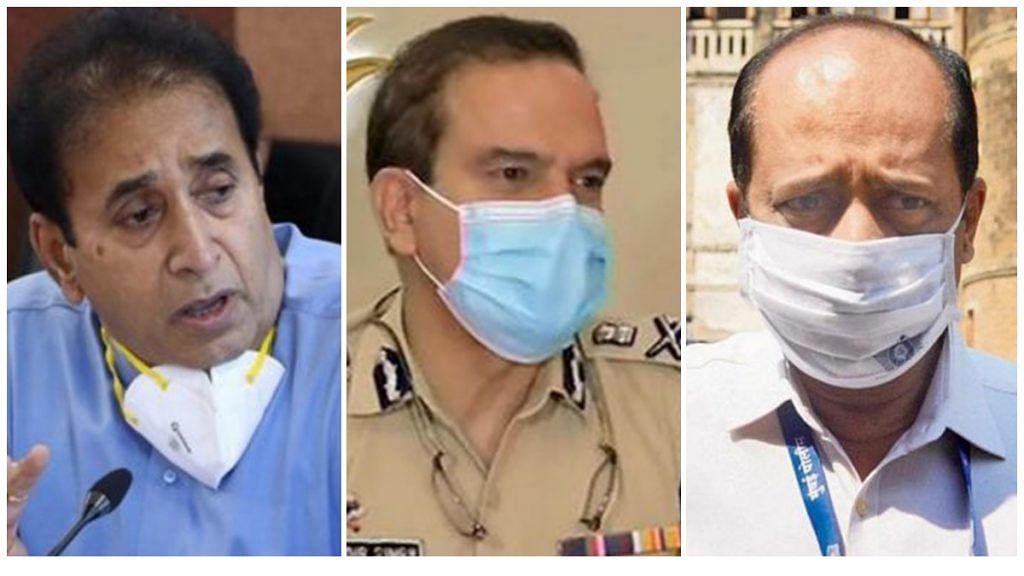New Delhi: Mumbai’s former police commissioner Param Bir Singh had written a letter to the Maharashtra chief minister and to the governor, alleging that state Home Minister Anil Deshmukh asked police officer Sachin Waze to collect Rs 100 crore per month from bars, restaurants and other establishments in the city. This has since led to a political slugfest as the BJP has demanded Deshmukh’s resignation and National Congress Party’s (NCP) Sharad Pawar has defended his party colleague, Deshmukh.
In episode 708 of ‘Cut the Clutter’, ThePrint’s Editor-in-Chief Shekhar Gupta explained why encounter politics lies at the heart of what has happened in Mumbai, how politicians have become complicit in fixing crime through encounters, and the lessons that can be drawn from Punjab and Kashmir.
“People like Sachin Waze are needed because the mafia have become so powerful that there is political pressure to do something right,” Gupta said. You need what is called an “easy despatch” mode in such cases. Gupta also underlined how in such cases, conventional policing will not work— that is when you catch someone, you have to take them in to remand and they may get bail in the course of time, following which they may threaten witnesses, judges and more. “You’ve killed the entire system of jurisprudence, which is supposed to give you justice. Now, because you’ve killed that system… you kill by the gun, you die by the gun,” he added.
Also read: Why MVA govt chose low-profile Hemant Nagrale to replace Mumbai Police chief Param Bir Singh
Mumbai has experienced several phases during which the underworld rule overpowered and then declined. The last such phase was in the 90s, when the encounter police came in. Later, after the encounters were over and Mumbai had been freed from the underworld, the police officers faced cases. They were prosecuted for murder, for allegedly staging fake encounters and even dismissed from service. “It so happened that they won their cases and they came back … Sachin Waze is one such case,” Gupta said.
Former top-cop Julio Ribeiro had written in The Indian Express, condemning encounter culture, underlining how it gives junior police officers too much power which is then misused and becomes “overly-useful” to senior cops and politicians with other motives.
Stressing on how it’s easy to believe Param Bir’s allegation of a politician wanting money made, Gupta added, “The underworld run by the mafia based in Dubai and elsewhere is now not even the underworld — it’s a straightforward extortion mafia run between the political class and the police.” There are several people like Sachin Waze who are too powerful, prominent and know too much. “Even if we change the system, you can’t banish the people. Even if you banish the people, they come back,” Gupta said.
Recalling a 2003 episode of NDTV 24×7’s ‘Walk The Talk’ that he had conducted with Sub-Inspector Daya Nayak and Inspector Pradeep Sharma — in whose unit Sachin Waze worked — Gupta said that one claimed to have killed 92 bad guys and the other 78 and both got into trouble. “Pradeep Sharma, on 31 August 2008 was dismissed from service because by this time, the underworld was over in Mumbai,” Gupta said.
He was reinstated after winning his case. He then joined the Shiv Sena, contested the 2019 election and lost. Similarly, Daya Nayak was temporarily suspended in 2006 and reinstated in 2012. Following this he was transferred to Nagpur, where he refused to go citing fear for his family. He was suspended again and reinstated again by 2016.
The state of Punjab and Kashmir have seen similar methods undertaken when terrorism had peaked. Several police officers who have handled terrorism in the two states employed the very same methods, said Gupta.
Julio Ribeiro was sent to Punjab from Maharashtra to deal with the situation because Punjab police personnel could not be trusted. Several attempts were made on his life but he survived. However, that has not been the case for all — senior superintendent of police, Patiala, Avinder Singh Brar was killed by suspected militants in 1987. General A.S. Vaidya, then Chief of Army Staff, was assassinated within months of Operation Bluestar in 1984.
In conclusion, Gupta said you have to do in Maharashtra what you did in Punjab and Kashmir. “You have to bring in officers from other cadres and run Mumbai police for the next few years. Unless you do that, you will not be able to clear Mumbai police.”
Watch full episode here:
Also read: Mumbai Police, India’s Scotland Yard, caught between khaki pride and khadi shadow
